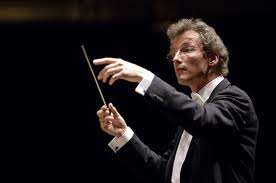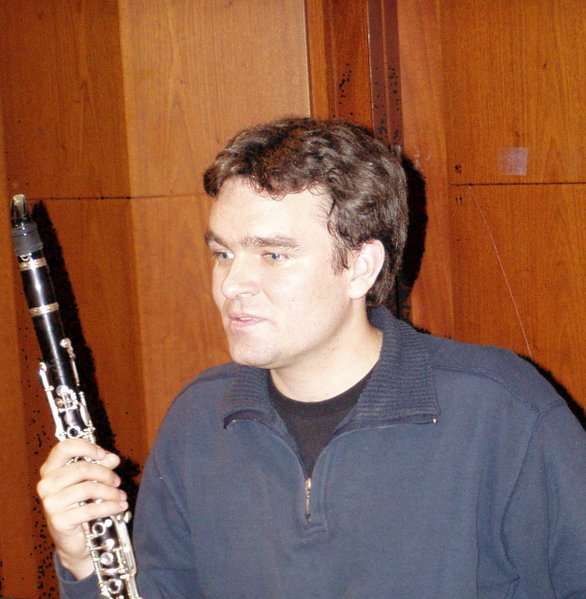|
Back
Schubert in Widmann’s Hall of Mirrors New York
Isaac Stern Auditorium, Carnegie Hall
03/02/2013 - & February 27, 2013 (Toronto)
Franz Schubert: Symphony No. 6, D. 589
Jörg Widmann: Lied
Richard Strauss: Till Eulenspiegels lustige Streiche, opus 28
Vienna Philharmonic Orchestra, Franz Welser-Möst (Conductor)

F. Welser-Möst (© Roger Mastroianni)
The shortcomings of the Vienna Philharmonic opening concert two nights ago were in short supply last night. Through a bit of magical programing–Franz Schubert straight and Franz Schubert through a Hall of Mirrors–through that exceptional balance which we expect from the orchestra, and through a most obvious love which conductor Franz Welser-Möst showed for this choices, it was an entrancing evening.
Where the opening night Dvorák Seventh Symphony was a graceless performance, last night’s Schubert Sixth was honored with Viennese grace, irony, and Haydnesque humor. Not, one must add, ribald laughter. Maestro Welser-Möst was so conscious to take the slow movement literally without a moment of exaggeration, that Schubert’s out-of-place fanfares, his “mistaken” drum beats, his mock solemnity was like a light christening of “Surprise” Symphony.
In fact, outside of the sobering, almost grave introduction, the conductor permitted no odd pauses or strange meters, turning the Sixth into a package of surprises, hidden in a gift package of elegance and charm.

J. Widmann (© Wikipedia Commons)
But this was not the last of Schubert. For that extraordinary 39-year-old clarinetist, pianist, conductor and composer, Jörg Widmann, was represented with his own Schubert, an unending 25-minute song called (appropriately enough) Lied. And if it was puzzling at times, the puzzle was deftly made, the solutions no more tangible than solutions to quantum mechanics, and the Schubert references gave it a space-time aerial grounding.
No, this was not like Luciano Berio’s reconstruction of a Schubert symphony, this was not the dizzying Lukas Foss variations on a Baroque theme. Widmann’s Lied was a labyrinth, and we were urged to follow him through the darkest tunnels blazing fires and back again.
Mr. Widmann has a brilliant sense of orchestra, but he is unique in taking other composers–”his” Beethoven and Schumann were performed here before–enveloping their techniques, quotes, and frames to make the music his own.
With Lied, the orchestra started in a hush, then, with no particular crescendo or form, it presented sudden violent chords (one including an accordion!), the most lush long string “songs”, a wonderful solo for contra-bassoon...and several quotes from Schubert, which peered in and around work.
Some composers would have made this a trick (“Hey, you think you’re listening to me, but listen to the cello playing Beethoven’s Fifth!”). Mr. Widmann lets his orchestra play measures from Schubert’s ”Unfinished”, a quintet, an octet. And then–and this was Widmann’s genius–pieces by Schubert which we thought we knew, but couldn’t quite place.
Was it Widmann or Schubert? Authentic or original? At a certain point in this mainly dreamy piece (a bit akin to Mahler’s Adagietto but with outbursts and screams), we could actually experience those real dreams which transcend logic, time and space, but which have a coded reality and an emotional pull all their own.
What one feels most about Mr. Widmann is that he is fearless to try anything he wants, and if a dream of Schubert is his inspiration, we were fortunate to share that dream.
Maestro Welser-Möst is one of many European conductors who has championed his music, and his hands were as certain with Widmann as with Schubert.
The finale was Richard Strauss’ innocent tale of a merry prankster–aeons away from the original Till Eulenspiegel, which, in the authoritative translation by Paul Oppenheimer, was virtually a creature of the devil. But Strauss could be a demonic composer when necessary. Both the Maestro and the Vienna Phil were so careful in telling this musical story that one wanted to cry out, as the clarinet screamed its last measures, “Oh, reprieve him! Redeem him!”
This, though, was not Beggar’s Opera. Our “redemption” from such a vicious musical tale was an insipid encore of Junior Strauss’s Kiss Waltz, the sole misdirection of the evening.
Harry Rolnick
|